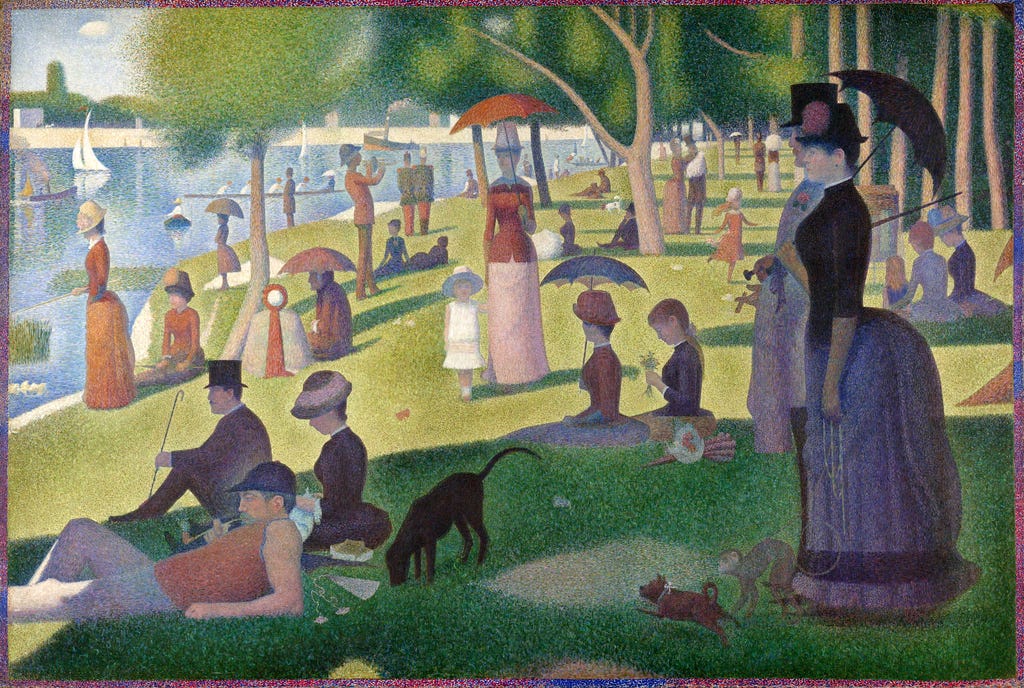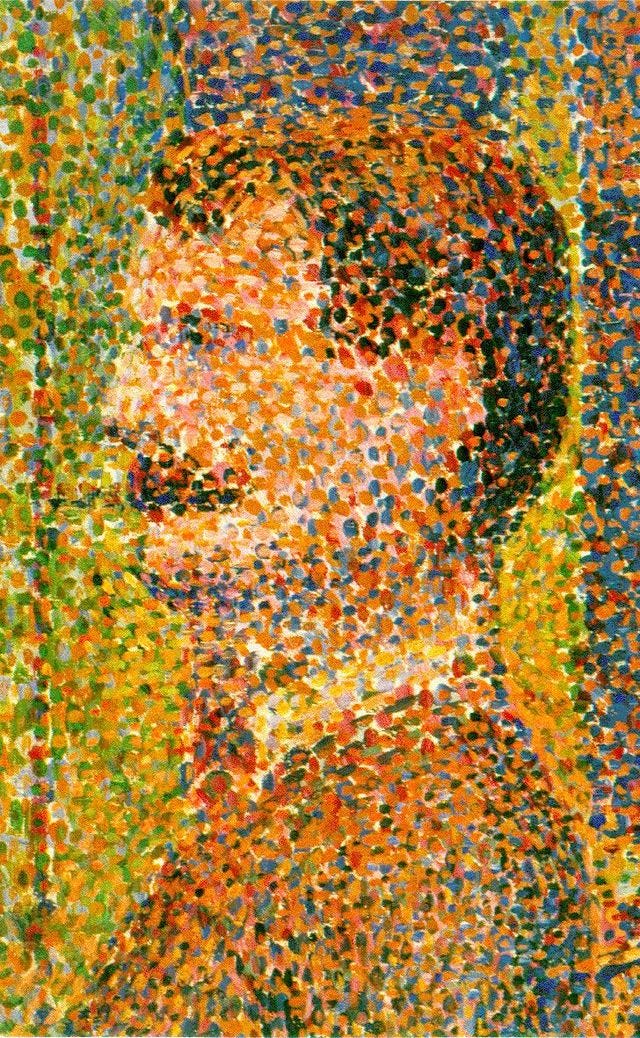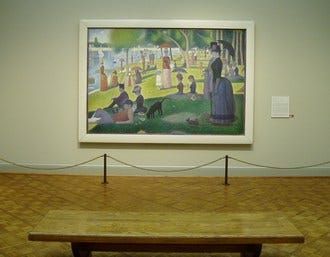“A Sunday Afternoon on the Island of La Grande (Un Dimanche après-midi à I’île de la Granda Jatte) is a painting that I have always found fascinating. I have never seen it in person, so my observations are like watching a movie on an airplane, and I’m watching someone else’s screen a row in front of me. I get the ‘drift’ of the film, and it’s the same way as seeing a painting in an art book or magazine. Then you have to think about the best representation of this painting. An expensive art book, a postcard, online? Some years back, I wrote a poem about this painting, or to be honest, inspired by the artwork that was published in a book of pictures by Georges Seurat:
You, boats, dog
& A monkey
Fishing
All under an umbrella or two
Each point
Is sharp
Yet, you don’t look at me
Except for the little girl
She can see the ghost
… Of a chance
When I look at this painting, I think of death. Because indeed, all these people, real or imagined, would be dead by now. I go through a time tunnel where I‘m transformed into that place and time. When I was in Paris, I went to the Île de la Jatte to imagine what that landscape looked like in Seurat’s painting. Of course, everything has changed, but I still wandered around the area to figure out where the painter viewed his ‘scene. ' I did bring a postcard image of the painting with me, but I decided to look at the landscape without the picture. I wanted to do it through memory, which I find is more accurate because the thoughts of a place are eventually more important than the facts.
It took Seurat two years to do this painting. He did many sketches and drawings before completing “A Sunday Afternoon.” What I find interesting is that he did a similar painting called “Bathers at Asnières, ” which is sort of the flip-side of “A Sunday Afternoon.” Same place (different location), but the bathers are in the sunshine, wherein the other painting, all the figures are under the shade, either from the umbrellas or trees.
I’m also intrigued by the woman who has a monkey with her. Was that a regular everyday occurrence in Paris 1884? The more you look at the picture, the more interesting and borderline eccentric imagery confronts the viewer. Seurat was very much a theorist as well as a painter. He was genuinely interested in optical and color theory. The whole painting consists of tiny dots or minimal brushstrokes, and what I find fascinating is that he enclosed the canvas with a pure white wooden frame. Again, I have never seen this painting in person, but seeing a photograph of the work being displayed in its current home (Art Institute of Chicago), the white frame sets the picture from the world today. When one looks at “La Grande Jatte,” you're looking at the painter, not indeed the art itself.






